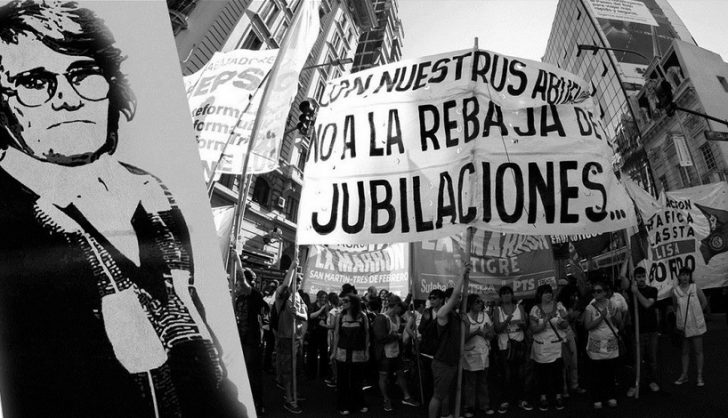In 2017, almost a decade after returning to a public pension system, MetLife, a private US insurer, sued Argentina at the International Center for Settlement of Investment Disputes (ICSID), claiming a breach to the Bilateral Investment Treaty between the United States and Argentina.
In this context, we preented an amicus curiae brief in the lawsuit against the Argentine State because we consider that it is imperative that the tribunal take into account the State’s human rights obligations. A privatized system like the one that existed in Argentina from 1993 to 2008 did not meet the minimum conditions for a fair and equitable social security system. The Argentine government therefore had an obligation to reform it.
In 2008, after fifteen years of proven failure, the Congress decided to revert to a public social security system, like that which exisits in most countries worldwide. MetLife today demands compensation for Argentina’s decision to terminate the private activity of pension fund administration. Following MetLife’s example, in 2018 BBVA sued Bolivia for its decision to end the privatization of its pension system in 2009 and in 2019 Nationale-Nederlanden Holdinvest also sued Argentina over its decision to reestablish a public pension system.
Neoliberal policies promoted by international financial institutions such as the IMF and the World Bank led to the privatization of the enjoyment of various human rights, such as education, health, public services and social security. Chile was the first country to privatize its pension system in 1981 during the Augusto Pinochet dictatorship, and in the following years 29 countries followed suit. The result of these privatizations was, in all cases, disastrous. According to the International Labor Organization, of the 30 countries that privatized their pension systems, 18 reverted it due to its appalling results.
Increasingly, countries have recognized that the privatization of human rights is a serious problem. In 2018, the United Nations Special Rapporteur on extreme poverty warned that the privatization of public services essential for human life in the last decades has brought strong setbacks for human rights.
However, companies are unwilling to lose their business opportunities and they resort to ICSID to sue states in closed door procedures. A few days ago, the Economics Nobel Prize Joseph Stiglitz along with more than one hundred international economy, development and social security experts, condemned the fact that these companies are suing Argentina and Bolivia for a correct state decision in an open letter.
Since the mid-1990s, many corporations have resorted to ICSID and in the vast majority of cases the States have been sentenced to pay millions in compensation. Funds that could be used to guarantee the enjoyment of people’s rights are diverted to increase the extraordinary profits of these companies.
At times during which countries must allocate extraordinary resources to alleviate the social and health crisis generated by COVID-19, it is unacceptable that these tribunals continue to sanction states with million dollar fines. Even more worrying is that they are sanctioned for guaranteeing a dignified life to its people and complying with their human rights obligations.
The organizations that presented the amicus curiae are the Center for Legal and Social Studies (CELS), Civil Association for Equality and Justice (ACIJ), Center for Public Policies and Human Rights – Peru EQUIDAD, Project on Organization, Development, Education and Research (PODER), European Center for Constitutional and Human Rights (ECCHR), Global Initiative for Economic, Social and Cultural Rights (GI-ESCR) and Center for Economic and Social Rights (CESR).

